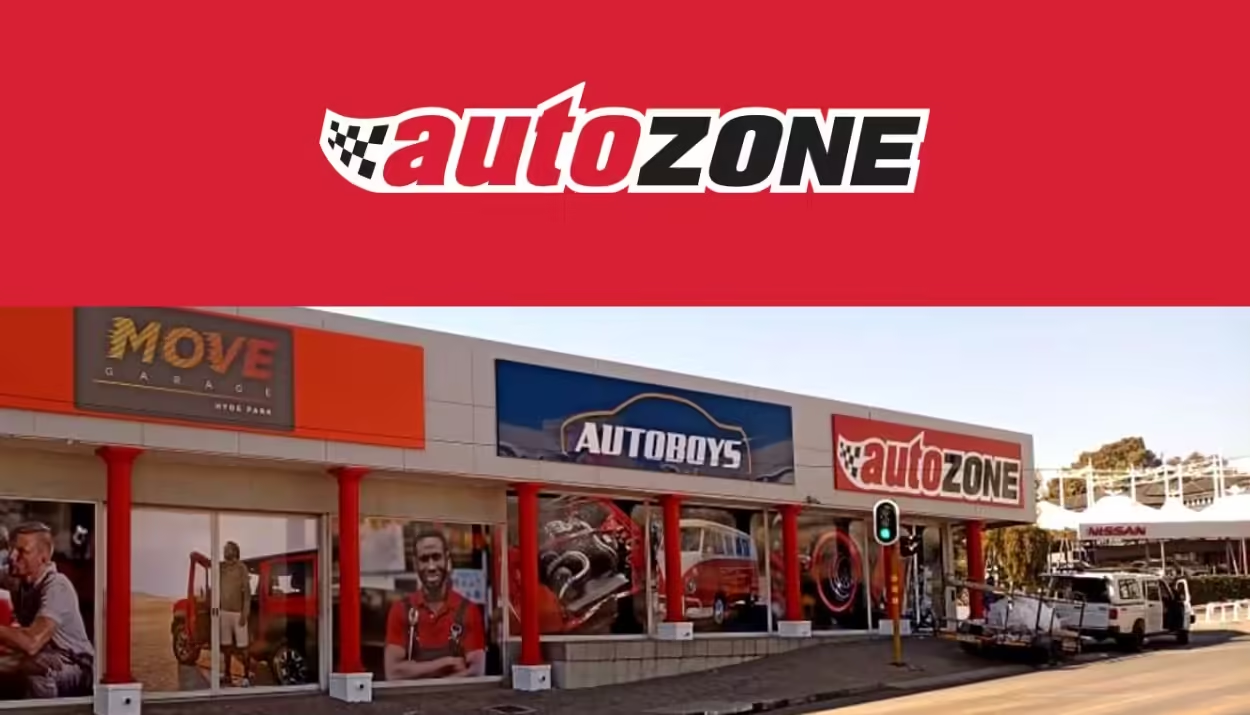One of South Africa’s largest automotive parts retailers and wholesalers, AutoZone, has voluntarily entered business rescue due to financial distress.
This follows a resolution by AutoZone Holdings’ board of directors on 1 July 2024, after which the Companies and Intellectual Property Commission (CIPC) confirmed receiving AutoZone’s application for voluntary business rescue on July 2.
The company, which has over 1,400 employees and nearly 200 stations across the country, acknowledged that it is unlikely to meet its debt obligations over the next six months.
AutoZone’s CEO, Dion De Graaff, detailed its financial struggles, disclosing that the company underwent a private equity deal in 2014 which was funded by a significant amount of debt.
Debt service holiday
De Graaff’s statement refers to the announcement by private equity firm Ethos in January 2015 that it had invested in AutoZone to acquire a controlling interest in the company.
Unfortunately, AutoZone failed to meet its expectations, primarily due to the increasingly challenging South African economy. This was compounded by the Covid-19 pandemic, civil unrest, and a period of stagflation.
“Throughout this period, AutoZone faced increasingly burdensome debt service obligations, diverting cash from operations to meet these funding needs. By late 2021, it became apparent that operations were contracting below break-even levels, initiating a cycle of negative operating leverage,” he said.
To address these challenges, Absa Bank provided quarterly debt service holidays, offering the auto parts retailer a temporary reprieve. In addition, a sales process was initiated to recapitalize AutoZone.
Despite implementing these measures, the company remained at a break-even point. De Graaff said Absa’s facilities matured on 30 June 2024 and since the sales process failed to conclude in a sale, the bank declined to grant another extension.
“The resultant future cash flows remain challenging and going concern [status] is uncertain,” the CEO said.
That said, De Graaff is optimistic that the auto parts retailer will recover, noting the AutoZone brand is a strong national brand with a loyal customer base, which makes it attractive to buyers and investors and enhances its prospects of being rescued.
He added that so far, three interested third parties have expressed interest in investing in AutoZone. The business rescue process will provide time for these potential investors to explore opportunities to restructure or purchase the company.
South African companies in financial distress
AutoZone is the latest in a growing list of South African companies in distress. Between January and April this year, 513 companies had been liquidated. Even major brands like West Pack, Ellies, Pick n Pay, and Multichoice have been affected.
Electronics company Ellies, for instance, entered voluntary business rescue on January 31. The company had misjudged the market, betting heavily on digital TV migration and investing in satellite dishes and related equipment.
However, things went south when digital TV implementation was delayed and DStv’s popularity waned. Although Ellies tried to pivot to alternative energy, it was unsuccessful.
In April, business rescue practitioner John Evans said there was no reasonable prospect of rescuing Ellies Holdings and recommended that the company be liquidated.
Similarly, West Pack Lifestyle initiated business rescue proceedings in May, with the company attributing the decision to rapid expansion, which strained its cash flows. The company could not pay its debts which were due in six months and had to enter business rescue.
Meanwhile, major JSE-listed companies like Pick n Pay and Multichoice are technically insolvent, meaning their liabilities outweigh their assets.
Pick n Pay’s audited results for the year ending February 25, 2024, showed that its total liabilities exceeded total assets by $10 million. On the other hand, Multichoice reported a $226 million loss for the year ending March 31, 2024.






